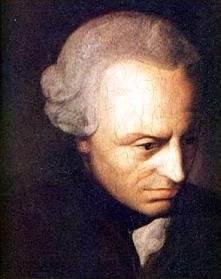Num notável artigo na New York Review of Books, Garry Wills, porventura o mais fino e erudito scholar da retórica de Abraham Lincoln, compara a Cooper Union Address deste (AQUI) com o discurso de Barack Obama no National Constitution Center (AQUI e supra).
Não é possível ser-se mais lisonjeiro do que admitir-se uma comparação destas. A entronização de Barack Obama num certo meio intelectual norte-americano está consumada – mesmo que perca as eleições (eu diria mesmo, sobretudo se as perder).
+++
"Two men, two speeches. The men, both lawyers, both from Illinois, were seeking the presidency, despite what seemed their crippling connection with extremists. Each was young by modern standards for a president. Abraham Lincoln had turned fifty-one just five days before delivering his speech. Barack Obama was forty-six when he gave his. Their political experience was mainly provincial, in the Illinois legislature for both of them, and they had received little exposure at the national level—two years in the House of Representatives for Lincoln, four years in the Senate for Obama. Yet each was seeking his party's nomination against a New York senator of longer standing and greater prior reputation—Lincoln against Senator William Seward, Obama against Senator Hillary Clinton. They were both known for having opposed an initially popular war—Lincoln against President Polk's Mexican War, raised on the basis of a fictitious provocation; Obama against President Bush's Iraq War, launched on false claims that Saddam Hussein possessed WMDs and had made an alliance with Osama bin Laden. [§] Neither man fit the conventions of a statesman in his era. Lincoln, thin, gangling, and unkempt, was considered a backwoods rube, born in the frontier conditions of Kentucky, estranged from his father, limited to a catch-as-catch-can education. He was better known as a prairie raconteur than as a legal theorist or prose stylist. Obama, of mixed race and foreign upbringing, had barely known his father, and looked suspiciously "different." [§] The most damaging charge against each was an alleged connection with unpatriotic and potentially violent radicals. Lincoln's Republican Party was accused of supporting abolitionists like William Lloyd Garrison, who burned the Constitution, or John Brown, who took arms against United States troops, or those who rejected the Supreme Court because of its Dred Scott decision. Obama was suspected of Muslim associations and of following the teachings of an inflammatory preacher who damned the United States. How to face such charges? Each decided to address them openly in a prominent national venue, well before their parties' nominating conventions—Lincoln at the Cooper Union in New York, Obama at the Constitution Center in Philadelphia." (CONTINUA)

Sem comentários:
Enviar um comentário